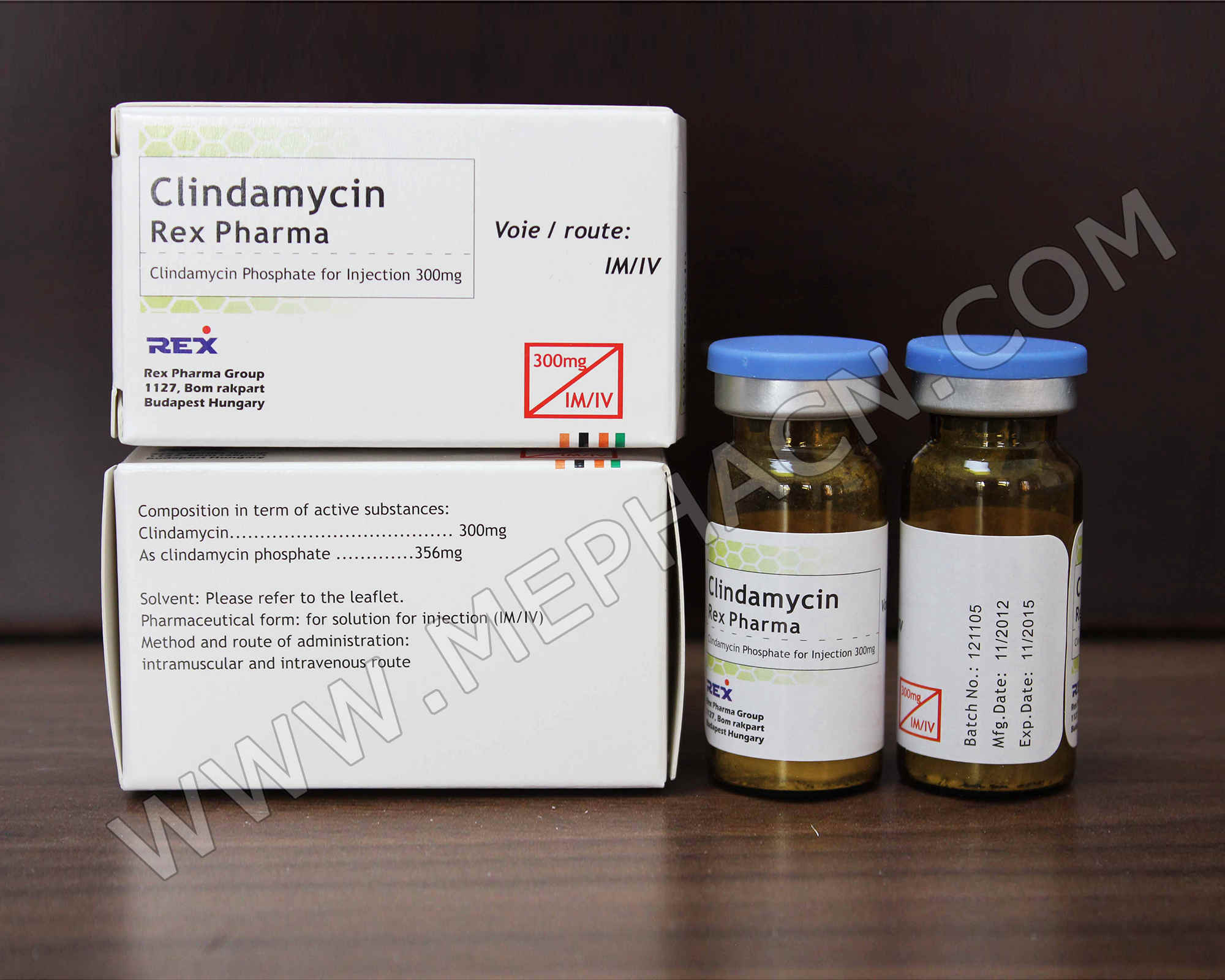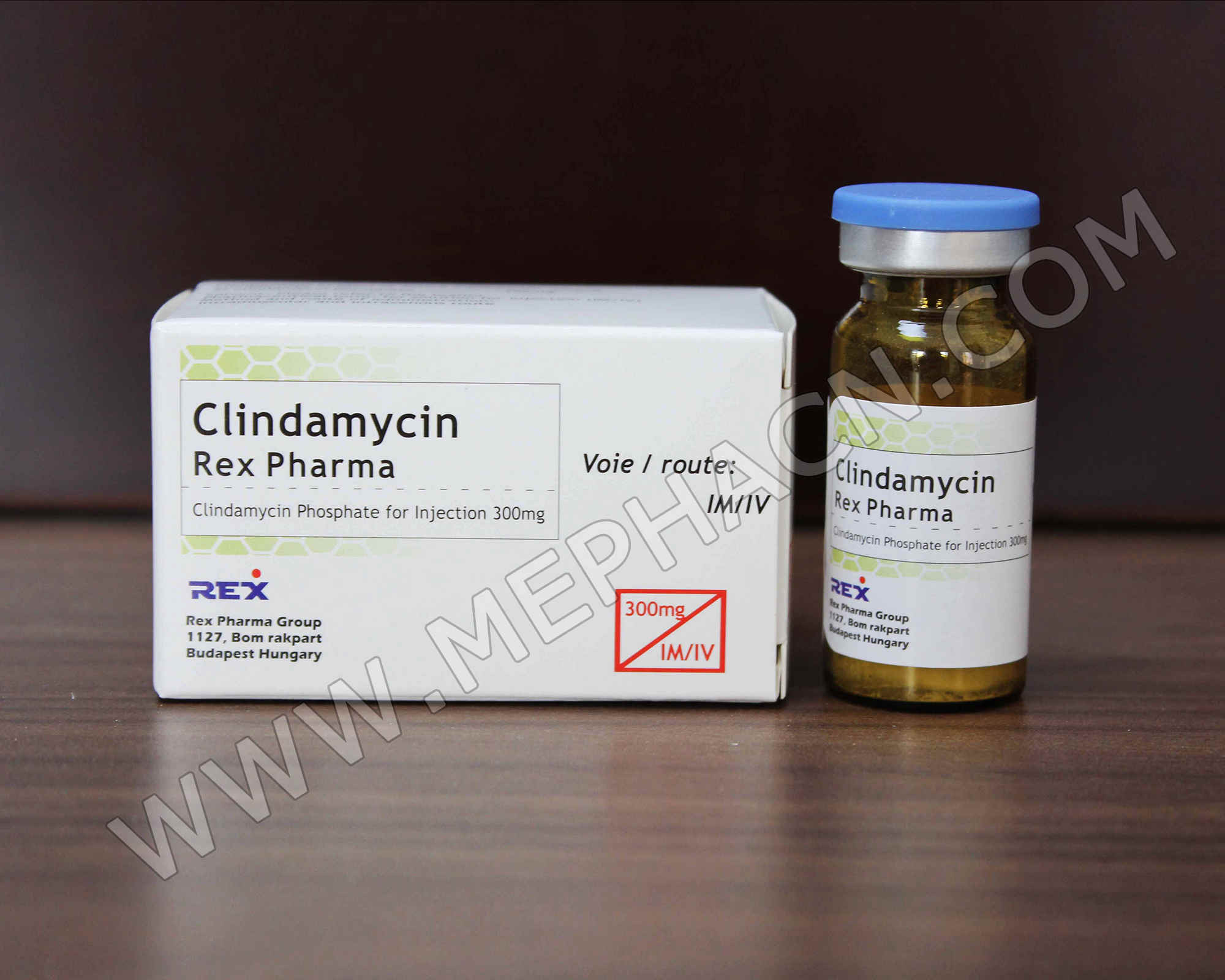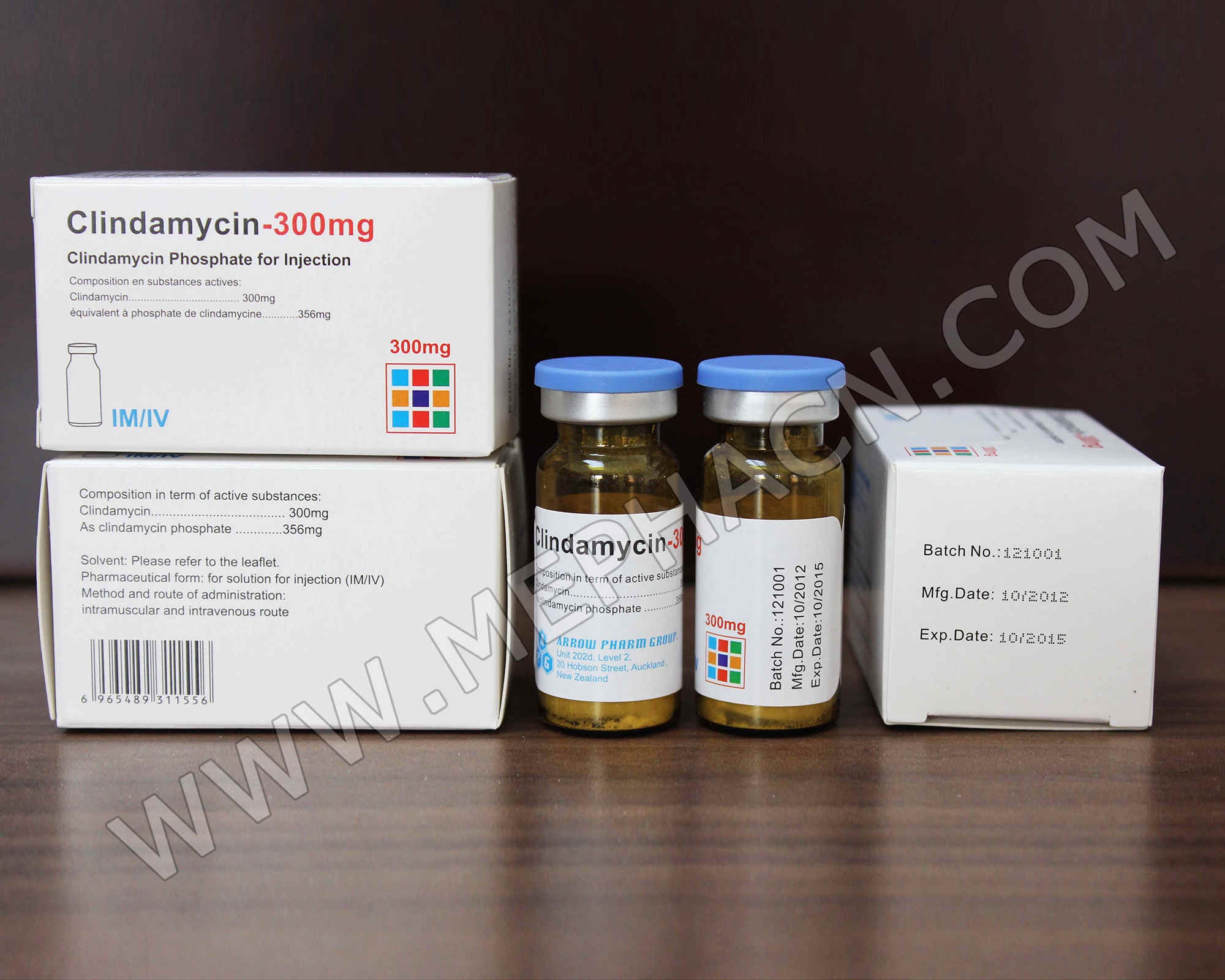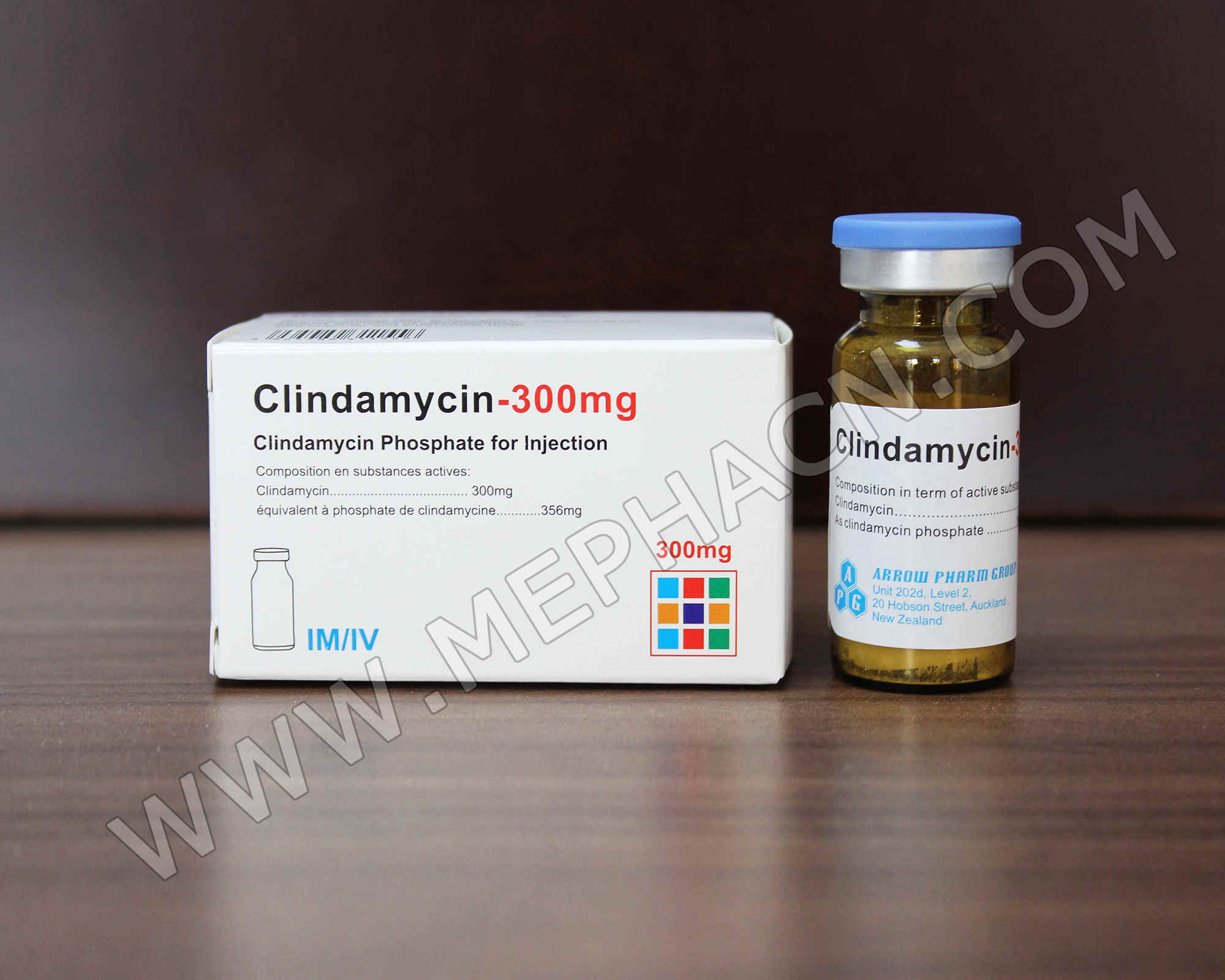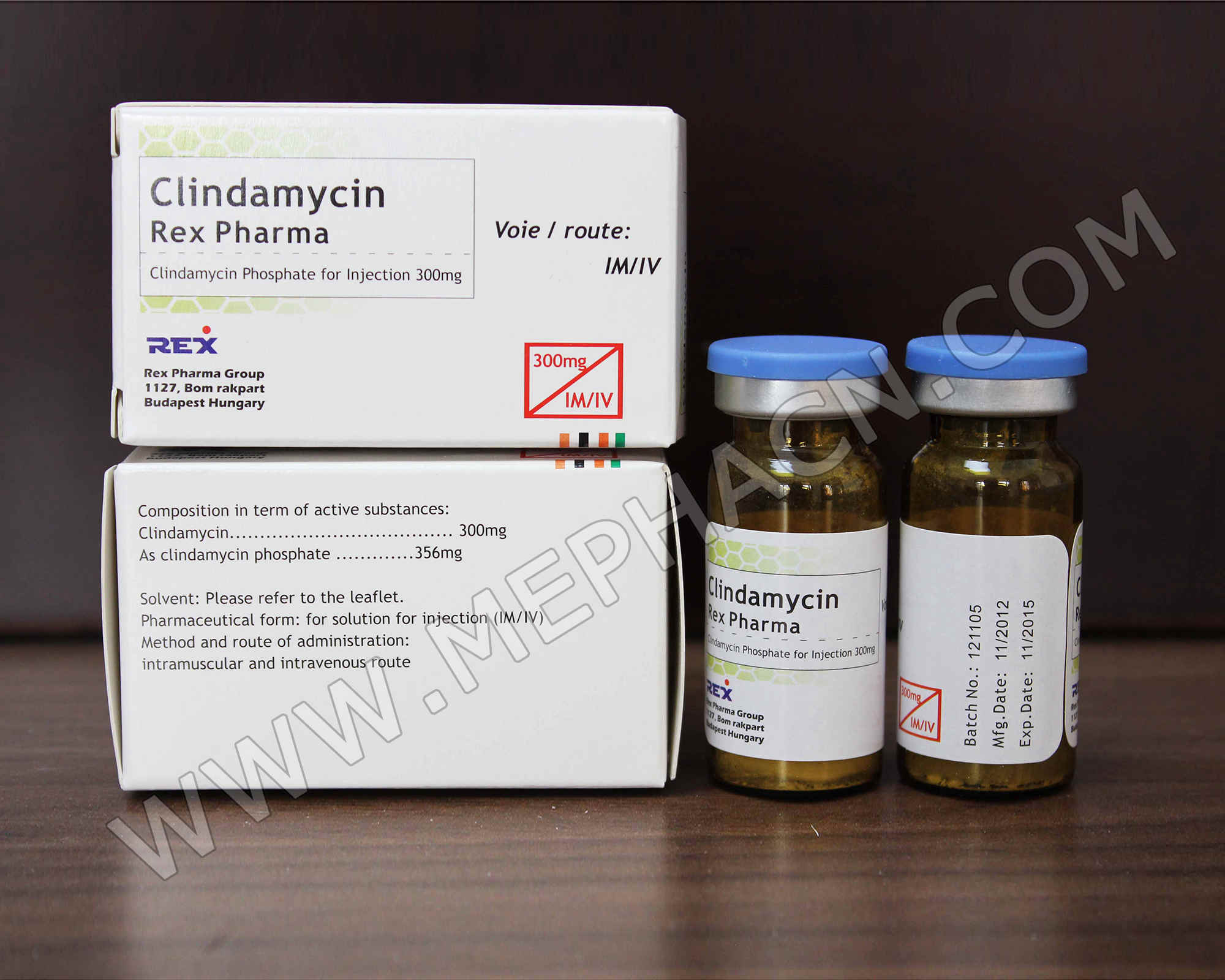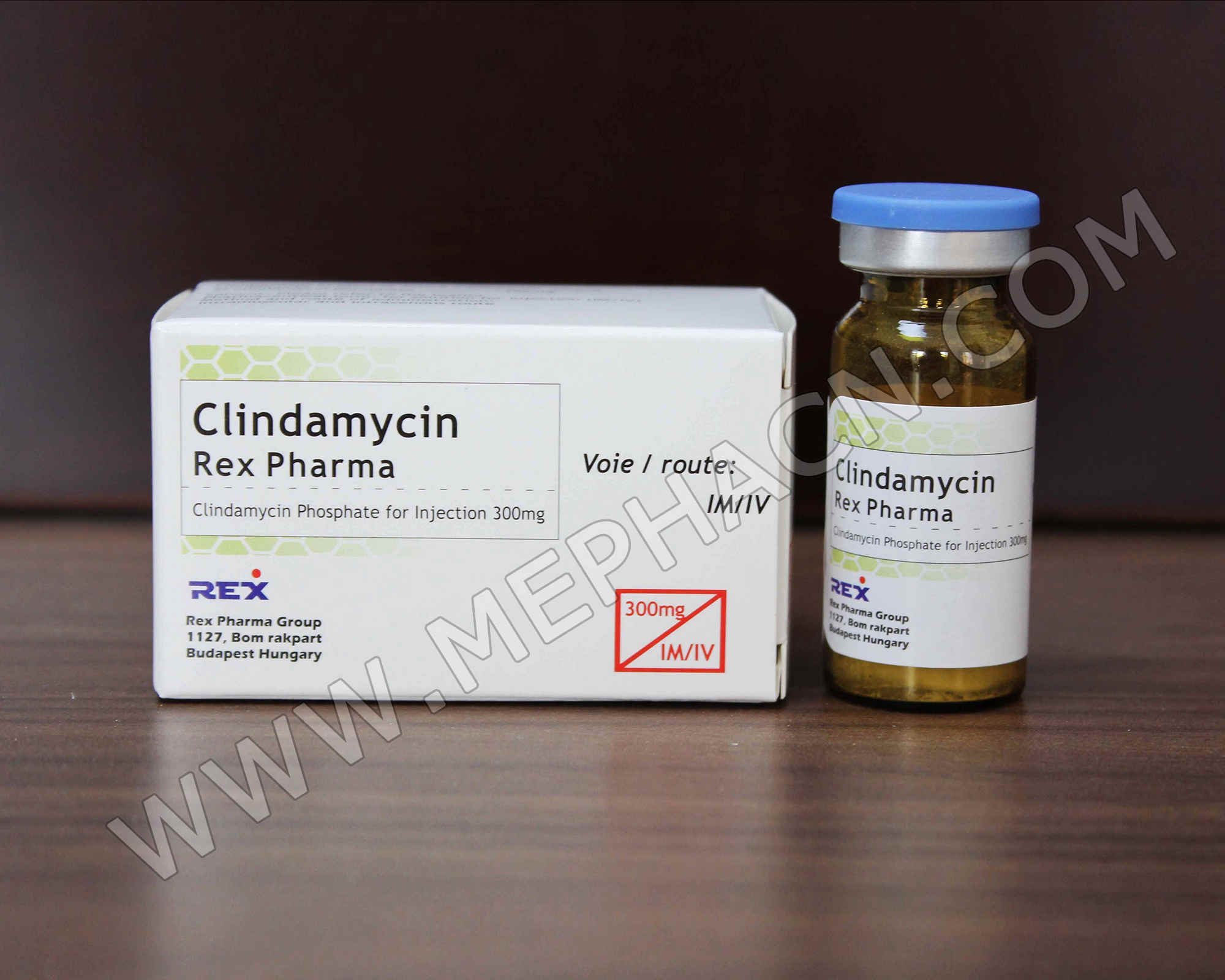Clindamycin for injection 300mg
1. Product name: Clindamycin for injection
2. Specification: 300mg
3. Package: 1 vial/box
4. Shelf life: 36 months
5.Registration dossiers are available.
If you are interested in our products,please feel free to contact us.
1. What Clindamycin Phosphate for injection is and what it is used for
Clindamycin Phosphate for injection is a sterile solution for injection into a vein (intravenously) or into a muscle (intramuscularly).
The solution contains clindamycin phosphate which is an antibiotic used in the treatment of serious bacterial infections.
2. Before you are given Clindamycin Phosphate for injection
Do not use
If you are allergic (hypersensitive) to clindamycin, lincomycin or to any of the other ingredients in this medicine.
3. How Clindamycin Phosphate for injection is given to you
Your doctor will give you your medicine as an injection into your vein (intravenous) or your muscle (intramuscular).
If it is given into a vein, it is always mixed with a sugar or saline (salt) solution before use and given using a drip.
When giving you Clindamycin, your doctor will ensure that the concentration of clindamycin does not exceed 18 mg per ml and the rate it is given to you does not exceed 30 mg per minute. If Clindamycin is given too fast it could rarely cause a heart attack.
Adults/Elderly
The recommended dose of Clindamycin Phosphate for injection is 600 to 2700 mg clindamycin per day in two to four equal doses, depending on the severity of your infection. Higher doses than this (up to 4800 mg daily) may be given by your doctor for very severe infections.
Children
The recommended dosage for children (over 1 month of age) is 15 to 40 mg of clindamycin per kg bodyweight each day in three or four equal doses. Higher doses of up to 300 mg per day (regardless of body weight) may be given by your doctor for very severe infections until a full response to treatment is observed.
Normally Clindamycin is only given to patients in hospital. The medical staff will be keeping a close eye on you during your treatment. If you need to have more than one course of treatment with clindamycin, your doctor may want to check that the clindamycin is not having any effect on the way your kidneys and liver are working.
Long term use can also make you more likely to get other infections that do not respond to Clindamycin treatment.
If you have any further questions on the use of this product, ask your doctor or pharmacist.
4. Possible side effects
Tell your doctor immediately if you develop:
Severe, persistent or bloody diarrhoea (which may be associated with stomach pain or fever). This is an uncommon side effect which may occur during or after completing treatment with antibiotics and can be a sign of serious bowel inflammation.
Signs of a severe allergic reaction such as sudden wheeziness, difficulty in breathing, swelling of eyelids, face or lips, rash or itching (especially affecting the whole body) Blistering and peeling of large areas of skin, fever, cough, feeling unwell and swelling of the gums, tongue or lips
Yellowing of the skin and whites of the eyes (jaundice).
5. How to store Clindamycin Phosphate for injection
Keep out of the reach and sight of children
Clindamycin Phosphate for injection will not be used after the expiry date which is stated on the carton. The expiry date refers to the last day of that month.
This medicine will not be stored above 25.
This medicine will not be refrigerated or frozen.
